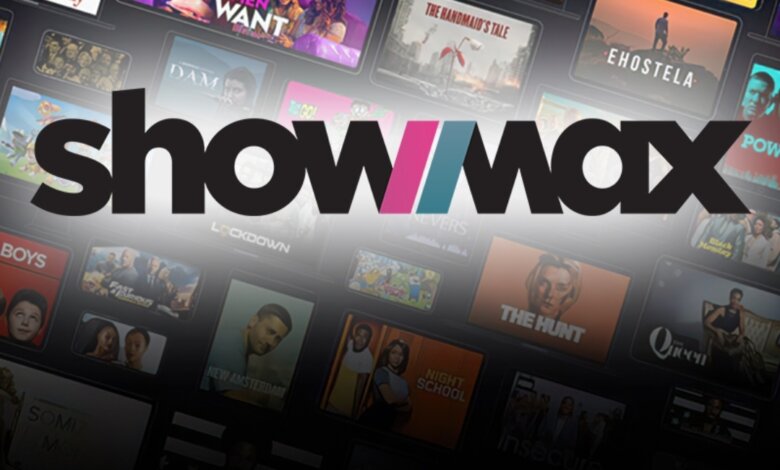Netflix Watch Out, ShowMax arrives in Africa

A newly-launched South African video-streaming service has the whole country abuzz as locals wait for Netflix to arrive. Called ShowMax, it could derail Netflix’s plans not only in South Africa but across the African continent.
ShowMax is a new division of South African media giant Naspers, whose DStv satellite service is the continent’s dominant broadcaster with some 10.2-million customers across 50 countries in sub-Saharan Africa.
ShowMax will operate as a separate company from MultiChoice, the Naspers division that provides DStv and its sports channel SuperSport. Currently only available in South Africa, its expansion plans are as much of a widely-rumored industry secret as the launch of ShowMax has been.
Like Netflix, ShowMax has a simple payment plan: R99 ($7,67) per month for unlimited video-on-demand (VOD) streaming on a PC, tablet, smartphone and recent Samsung and LG smart TVs.
Although Netflix confirmed early this year that South Africa would be one of the 200 countries it expands into by December 2016, it will have a hard time competing with ShowMax’s value proposition, which offers 11 000 hours of content, including local favourites in Afrikaans, the second-most widely spoken language in South African homes, after Zulu and ahead of third-placed English.
Most Americans would be surprised to hear that the mighty Netflix could have competition from a company they have never heard of, especially one that doesn’t even operate in North America (but has bought numerous US tech firms). But Naspers is the biggest media company you’ve never heard of. With a market capitalization of R714bn ($55.2b), it is a media conglomerate with significant investment in China, India, and Russia. It also has operations in other emerging markets in Brazil and Eastern Europe.
Chairman and former CEO Koos Bekker is a South African business legend, comparable in stature to a kind of Rupert Murdoch figure but infinitely more intelligent, with some of Steve Jobs’ visionary genius. Under Bekker, Naspers bought a 37% stake in Chinese messaging giant Tencent, which owns the fast-growing WeChat messaging service with its 600-million global users.
The group also owns stakes in India’s largest online retailer (Flipkart) and Russia’s largest social networking site (Mail.ru). Until these investments, MultiChoice had been the group’s best media asset, and a pioneer in digital broadcasting, adopting brand-new technologies when it first launched over 20 years ago.
“Naspers are probably one of the most formidable media companies in the developing world,” says Arthur Goldstuck, managing director of researchers World Wide Worx, based in Johannesburg. “They have taken many outrageous bets and won big on many of those bets. They don’t always succeed, but when they do, they do it in spectacular fashion.
“The first of their truly massive success stories was MultiChoice itself. Their ecommerce play in India, Flipkart, could be as good as Tencent – it’s the Alibaba of India and Naspers own one fifth of it, 19%. You can expect to see big numbers coming from there. We tend to focus on the contribution made by Tencent and other Asian and East European players. But Naspers’s impact across Africa is huge and it still has big growth opportunities with ShowMax,” adds Goldstuck.
However, Naspers’s figure of 10-million satellite and digital subscribers is a far cry from Netflix’s 66-million. This doesn’t deter ShowMax GM John Kotsaftis, an internet industry veteran from Naspers’s very successful internet division, tasked by Bekker to make MultiChoice more digital. Over the past six years, Kotsaftis and his team have revamped the Explora personal video recorder (PVR), launched video-on-demand through a catch-up service and a pay-for-view movie service called Box Office.
ShowMax has been launched as a standalone business separate from MultiChoice, but the group’s two decades of experience have made it a formidable player in all the aspects of broadcasting needed for ShowMax to succeed, from negotiating content rights to operating technically complex technologies and managing millions of customers.
When launching the Explora decoder two years, he says, “the internet wasn’t here yet, because broadband wasn’t here yet. So we spoofed the internet. We created a [set-top] box that looked like it was connected to the internet. When we ultimately connected the Explora, which has been a runaway success, we were able to convert people accustomed to push VOD from satellite into heavy users of pull VOD. Our users have fallen into that habit of VOD. We created the phenomenon where people are using video-on-demand.”
But the key, he says, is not the technology: it’s the content. “We’ve had a legacy in content. We understand it. We produce a lot of local content, more than anyone else on the continent.”
Asked how he plans to compete against Netflix, widely considered the gold standard of video streaming, Kotsaftis told me: “To be blunt, we think ShowMax is better. We’re offering the same amount of content or even more than that offered by Netflix in key countries outside the USA, with two key value-adds.
“Firstly, we have some really popular content, from studios like HBO, that Netflix doesn’t have. Secondly, we have a large amount of local content, which shouldn’t be underestimated. No international service has the knowledge or ability to provide first-class local language content.”
ShowMax may be focused on South Africa for now, but Naspers clearly has continental and global ambitions, as it has shown with its portfolio of emerging-market digital and internet investments.
“It would be premature to talk to this at this stage,” Kotsaftis says. “Our focus at the moment is getting things off the ground in South Africa. Clearly, we think that the service is scalable, but that’ll be a discussion for another day.”
Goldstuck, who as the country’s first technology journalist is South Africa’s Walt Mossberg, believes Naspers still has huge growth potential. “Naspers is more than a media company, they are a digital business, and becoming a digital empire,” he says. “The huge advantage they have over the big names from western markets is those big names tend to underestimate developing markets and they have almost left them clear for brands like Naspers to come in and clean up.”
Source: Toby Shapshak
Oral Ofori is Founder and Publisher at www.TheAfricanDream.net, a digital storyteller and producer, and also an information and research consultant.





